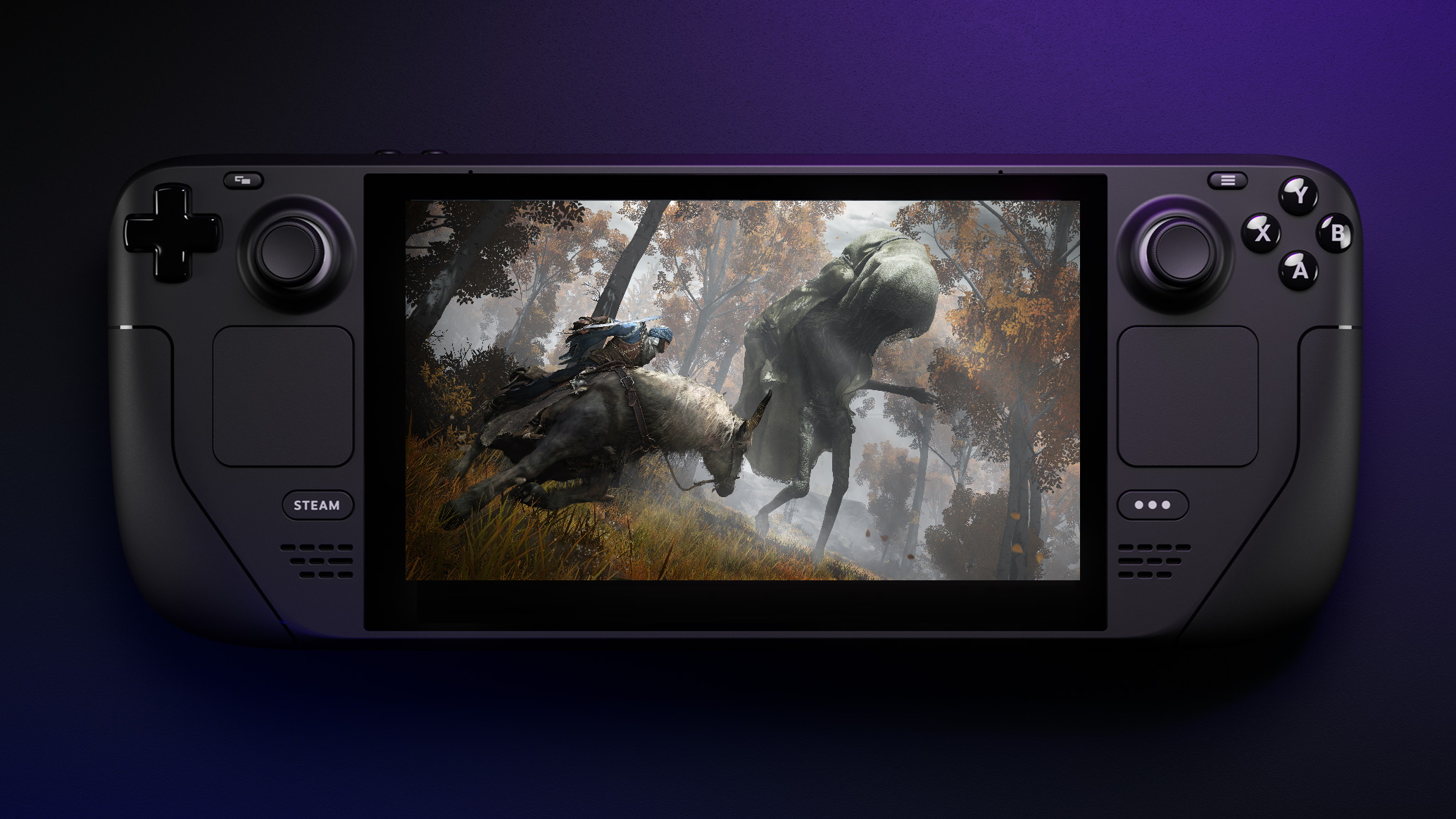Valve designer reveals 'multiple, exciting' games are in development
Multiple Valve games are also apparently in development

Greg Coomer, a designer for Valve, has confirmed in an interview with Axios that some exciting new games are currently being created. While no specific franchise names were dropped, Coomer stated that “There are multiple games in development right now at Valve, and I think they're pretty exciting ones.”
Valve is best known as the company behind the Steam game distribution platform, but it also has an impressive list of titles to its name, such as Portal, Half-Life and Team Fortress. Valve announcing that it's developing games again is pretty big news in itself, given how infrequently the developer launches new titles, though Coomer has at least confirmed that none of the titles under development will be Portal 3.
The Steam Deck also didn't have its own launch title, but given the picture Coomer paints for its development, we can hardly blame Valve for not wanting to add too much to its plate. The company promised to test every game on Steam to check its compatibility with the Steam Deck handheld, but of the 50,000 titles currently listed on the service, only 1,000 games have actually been ticked off.
“It’s a daunting task,” Coomer stated in regards to the process, mentioning that the company is currently hand-checking games for things like text readability and that Valve may need to "invent some other way of evaluating games.”
Sadly, some third-party games like Fortnite and Destiny 2 are also still excluded from the Steam Deck system, but in Fortnite's case that's down to developer Epic Games to arrange. As yet, Epic’s Tim Sweeney has said Epic has no current plans to allow its games to run on the handheld, citing concerns around running anti-cheat software on the Linux-based system.
"Fortnite is a great game,” Coomer says. “We hope Epic wants their games to run on Steam Deck. They can if they want to and if they choose to do that.”
Destiny 2 also has issues with Proton's anti-cheat, as do several of Steam's top games like Apex Legends and PUGS, but hopefully that can be worked out with the games' developers down the road.
Get daily insight, inspiration and deals in your inbox
Sign up for breaking news, reviews, opinion, top tech deals, and more.
Coomer also mentioned that Valve hopes to create future versions of the Steam deck, but it still hasn't "nailed down how that will work". A possibility of monolithic updates for the current system was dropped into the conversation; however, Coomer also added that "we don't have a completely ironed-out plan for the cadence of the hardware updates."
Opinion: Sit tight, it's early days
Given Valve's track record with releasing hardware, it was correct to be cautious. As much as I loved the Steam Link and Steam Controller, they were an acquired taste that ultimately flopped.
Now that there is proven demand for the Steam Deck console, Valve can start planning on what needs to be developed and patched to keep the handheld PC desirable. A second generation is likely pretty far away, but it would be nice to see some personality injected into it for any upcoming refreshed or updates.
One section of the interview states that "Valve wasn’t prepared to ship multiple colors and felt black was the easiest one to debut", which I feel was the right call for its initial launch, but additional chassis colors and designs are a part of what makes other handhelds like the Nintendo Switch, or even as far back as the GameBoy Color, so desirable to different audiences.
Be it different cases or game-specific designs, I'd love to see the same aesthetics applied to the Steam Deck as we see in modern gaming. PC gamers have a whole world of customization options, while the Switch can be outfitted with various decals and custom buttons. Even the Sony PS5 is getting involved with those funky, galaxy-toned faceplates.
This won't help anyone hoping that Valve is already developing something like Half-Life 3 for the platform, but I guarantee you'll see an uptake in Steam Deck sales if you just make it available in pink.
- These are the best Steam Deck accessories you should buy right now
Jess is a former TechRadar Computing writer, where she covered all aspects of Mac and PC hardware, including PC gaming and peripherals. She has been interviewed as an industry expert for the BBC, and while her educational background was in prosthetics and model-making, her true love is in tech and she has built numerous desktop computers over the last 10 years for gaming and content creation. Jess is now a journalist at The Verge.
